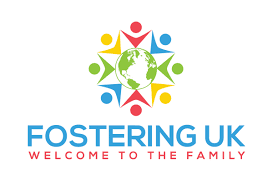Reasons Children Enter the Foster Care System
According to the UK Fostering, There are many hundred thousand kids in the foster care system in the US at any given moment. While some kids stay in foster care for just a few days, others do so for many.
The Reasons Behind Foster Caring for Children
Children may be taken from their homes and placed in foster care for a variety of reasons. The court or social services agents appointed to each family must take into account a variety of considerations in each case because no two situations are alike. Based on what is best for the relevant child or children, decisions are taken. One or more of the following are some of the most frequent causes for a child to enter the foster care system:
Abandonment: Children may also enter fostering agencies as a result of parental absence after dropping them off somewhere, like school or with a babysitter, or when they are left unattended at home for long stretches of time.
Death: Although family members typically step up to care for a kid after the loss of their parent, there have been instances where children have needed to enter foster care as a result of the lack of a family member who is acceptable to them.
Incarceration: When no relatives or friends are available to look after a child while a parent is incarcerated in a prison or jail, the youngster may be placed in foster care because they need a foster family.
Juvenile offences: If the home setting is thought to be a contributing factor to a recurring problem with breaking the law, a child who has been designated a juvenile offender by the legal system may be sent into foster care. If the parents are unable to effectively supervise their children, this is very likely.
Medical neglect: When birth parents choose not to take their child to the doctor, it may endanger the child's health. These situations might qualify as medical neglect and justify placing a kid in foster care services. These regulations may be waived for parents who have religious objections to receiving a certain type of medical care.
Neglect: Neglect includes a variety of behaviours, such as failing to provide a child's basic needs for food, a tidy living space, or emotional well-being. Although it is very challenging to demonstrate, emotional abuse frequently contributes to physical and sexual abuse.
Physical harm: Physical injury can take many different forms. Many often, bruises or other obvious indicators of harm to a kid lead to the discovery and/or documentation of child abuse. Before a child is taken away, numerous efforts are typically made to assist a family in learning alternate forms of punishment. The definition of physical abuse in each state or nation, as well as the criteria for whether to take a child from their family, are decided locally. Restricting a child or locking them in a locked room are also examples of physical abuse.
Runaways: Placement on a parent's own initiative: On occasion, usually as a result of a child or parent's mental health problems or other medical ailments, some parents have asked to have their kids placed in foster care.
Sexual assault: The many types of sexual assault are numerous. Some methods of conceptualising sexual abuse include viewing pornographic content or engaging in sexual activity on one end of the spectrum and fondling, penetration, or other sexual acts on the other.
Placement on a parent's own initiative: On occasion, usually as a result of a child or parent's mental health problems or other medical ailments, some parents have asked to have their kids placed in foster care.
Another reason to remove a child from their home is truancy or unjustified absence from school. Parents are in charge of ensuring that their kids go to school on a regular basis.




Comments
Post a Comment